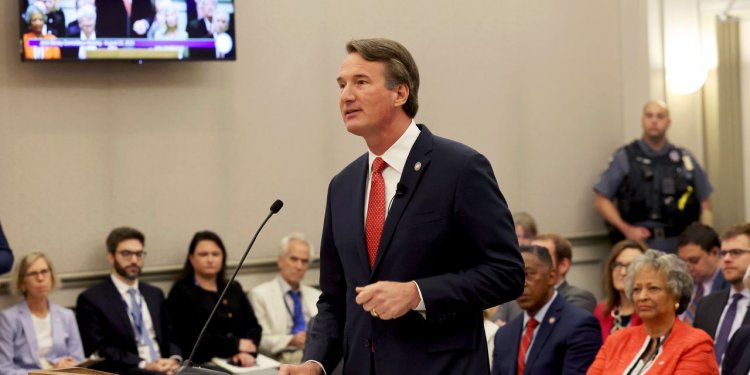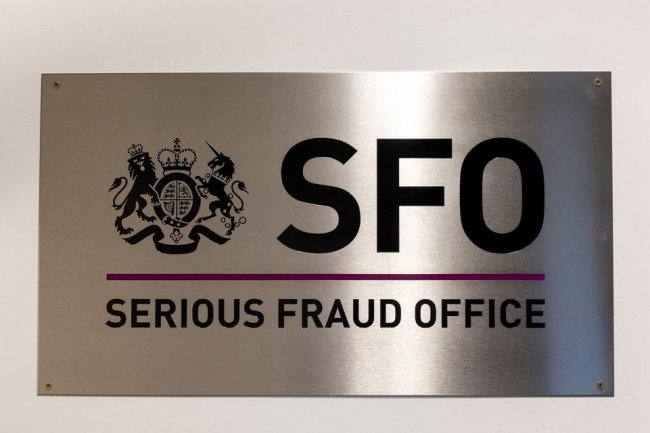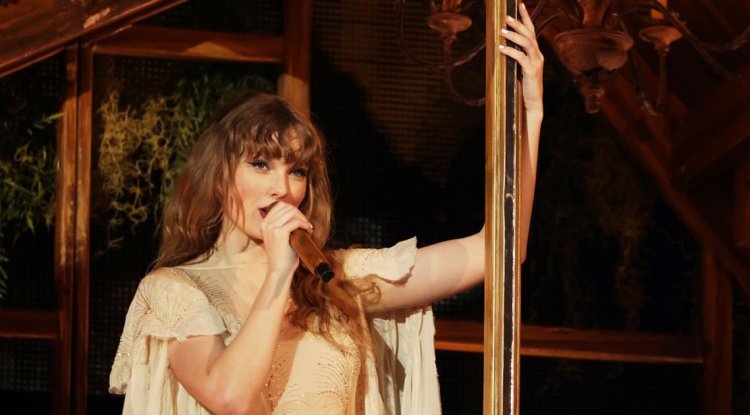Glenn Youngkin’s Quest to Keep Virginia From Becoming Illinois
Before he can think about running for president, the Republican governor has to rein in public unions. By John Tillman Sept. 1, 2023 5:30 pm ET Virginia Gov. Glenn Youngkin in Richmond, Va., Aug. 23. Photo: Daniel Sangjib Min/Richmond Times-Dispatch/Associated Press Conventional wisdom says that Virginia’s legislative elections in November could make or break Glenn Youngkin’s presidential ambitions. Yet the stakes are much higher for Virginia residents. This election, in which all 140 seats in the bicameral General Assembly will be contested, may decide whether Virginia remains a haven for families and taxpayers or goes the route of failing states like Illinois. Virginia is on the verge of the death spiral that comes when government unions conquer a state. In 2020 then-Gov. Ralph Northam sign


Virginia Gov. Glenn Youngkin in Richmond, Va., Aug. 23.
Photo: Daniel Sangjib Min/Richmond Times-Dispatch/Associated Press
Conventional wisdom says that Virginia’s legislative elections in November could make or break Glenn Youngkin’s presidential ambitions. Yet the stakes are much higher for Virginia residents. This election, in which all 140 seats in the bicameral General Assembly will be contested, may decide whether Virginia remains a haven for families and taxpayers or goes the route of failing states like Illinois.
Virginia is on the verge of the death spiral that comes when government unions conquer a state. In 2020 then-Gov. Ralph Northam signed a law allowing localities to authorize collective bargaining for public employees, fulfilling a long-running demand from one of the Democratic Party’s biggest electoral backers. Organizing began in 2021, and two years later government unions are beginning to flex their muscles with the goal of electing friendly politicians who will protect union power and support higher taxes to pay for their demands.
The Illinois analogy may seem overblown, yet that assumption is precisely what government unions are counting on. Virginia’s public unions and their allies touted the 2020 law as a way to support teachers, firefighters and police officers. They said nothing about the associated costs to taxpayers, much less the expansive union vision of controlling state coffers. Lo and behold, Virginians are starting to fork over more money—not only to public employees, but also to negotiators, lawyers, and the endlessly bureaucratic union machine.
Take Loudoun County, where the school board has approved collective bargaining, allocating an extra $3.3 million to hire 13 new administrators specifically for union-related work in 2024. That’s before the additional cost of a coming teachers union contract. In nearby Alexandria, setting up union negotiations is expected to cost taxpayers up to $1 million, while the General Assembly’s Commission on Local Government predicts the city’s eventual union contracts will cost $25 million annually.
Fairfax County is forecasting at least $1.6 million in administrative costs, with forthcoming union contracts likely costing tens of millions more per year. Prince George County, south of Richmond, foresees the annual cost of contracts at $10 million, with one local official saying the higher costs will run “forever.” In Richmond itself, public-school employees and principals have already unionized, with teachers ratifying a pricey contract in December. The costs will grow as unions make more demands, and inevitably unions will demand higher state taxes as well as local levies to fund the largesse.
Money isn’t the only thing taxpayers are losing. They’re also losing control over their local governments and schools. When agencies and educators unionize, the average person can’t simply petition elected officials to intervene if there’s a problem, because a collective-bargaining agreement binds officials’ hands. If a teacher is failing his students, the union protects him. If a police officer is targeting or neglecting a specific part of town, the union covers for him. This is the proven path to government that’s less responsive and more costly.
Naturally, Virginia’s public-employee unions have no intention of letting go of their growing power. They have opened the floodgates of political spending. The Virginia Education Association, the state’s largest teachers union, increased its political contributions 11-fold between 2020 and 2022. Every cent in 2022 went to Democrats. Unions hope to elect Democrats who will reward them with even better contracts. As unions gain more members, they’ll get more dues money to spend electing friendly politicians. It’s a cycle that benefits everyone but Virginians.
Gov. Youngkin knows the immense danger facing his state. He’s made repealing the 2020 collective-bargaining law a priority, yet with slim Republican control in the House of Delegates and a Democratic majority in the Senate, he couldn’t make headway over the past two years. That would change if Republicans took full control of the General Assembly. Both the GOP and unions have launched massive get-out-the-vote efforts, with a particular focus on early and absentee voting. Victory will likely come down to which side turns out the most voters before Election Day.
If Republicans fall short, it will get harder to repeal public-sector collective bargaining, since unions will become more powerful with every passing year. It may be now or never to stop Virginia from becoming a wholly owned union subsidiary like Illinois. If Mr. Youngkin succeeds in winning back the General Assembly this November, it won’t merely add to the buzz around him as a possible presidential candidate. It may very well save Virginia.
Mr. Tillman is CEO of the American Culture Project.
Journal Editorial Report: Presidential talk continues about the Virginia governor. Image: Benjamin Girette/Bloomberg News The Wall Street Journal Interactive Edition
What's Your Reaction?






















